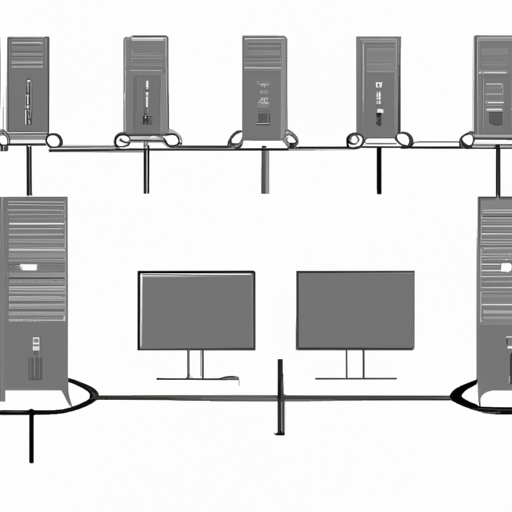Clojure is a dynamic programming language that focuses on functional programming and immutability.
It has a simple syntax, supports concurrent programming, and emphasizes the use of immutable data structures.It is influenced by Lisp and has advantages such as increased productivity, reduced errors, and the ability to use existing Java resources. It is commonly used in web development and big data processing.
Clojure is a programming languagedynamic, general-purpose, that is gaining popularity in the world of software development.
Developed by Rich Hickey in 2007, Clojure is a dialect of the Lisp programming language and is known for its simplicity, concurrency, and immutable data structures. In this article, we will explorewhat Clojure is, its key features, syntax and data structures, and its real-world benefits and applications.
Whether you’re an experienced programmer or just starting out, understanding the fundamentals of Clojure can greatly improve your productivity and scalability in buildingrobust and efficient applications.So let’s dive in and explore the world of Clojure together!
1.”Introduction to Clojure, a functional programming language”
Clojure is a programming languagedynamic, general-purpose programming that is designed to be fully functional and runs on the Java Virtual Machine (JVM). It was created by Rich Hickey in 2007 and is influenced by Lisp, a family of programming languages known for its powerful syntax andexpressive.
One of the key features of Clojure is its focus on functional programming. In a functional programming paradigm, programs are built by composing pure functions, which are mathematical entities that map input values tooutput values without side effects.
This approach promotes immutability and encourages developers to write code that is easier to reason about, test, and maintain.
Clojure also embraces the concept of immutability, which meansthat once a value is assigned, it cannot be changed. Instead, new values are created based on existing ones. This ensures that data remains consistent and makes it easier to reason about program behavior. Immutability is particularly useful in concurrent programming because it eliminatesthe need for locks and allows safe sharing of
2.“Clojure Key Features Simplicity, Concurrency, and Immutable Data”
Clojure is a dynamic and functional programming language that runs on the Java Virtual Machine (JVM). It is known for its simplicity, concurrency, and emphasis on immutable data.
One of the key features of Clojure is its simplicitysa. Clojure was designed to have a minimalist syntax and a small core set of features, making it easy to learn and understand. The language avoids unnecessary complexity and focuses on providing powerful abstractions that enable concise and expressive code.
Concurrency is another important feature of Clojure. The language provides built-in support for concurrent programming, making it easy to write code that can execute multiple tasks simultaneously.
The Clojure concurrency model is based on immutable data structures and memorysoftware transaction management (STM), which allows secure and synchronized access to shared data. This approach simplifies the process of writing concurrent code and reduces the chances of encountering common problems such as race conditions and deadlocks.
Immutable data is a fundamental principle in Clojure.In Clojure, data structures are immutable by
3.“Clojure Syntax and Data Structures Understanding the Lisp Influence”
Clojure, being a dialect of Lisp, has a syntax and data structures that are heavily influenced by the programming language Lisp. Lisp, which stands for “LISt Processing”, was one of the first languagesprogramming languages developed in the late 1950s. It is known for its use of parentheses and prefix notation.
One of the key features of Clojure’s syntax is the use of parentheses to group and organize code. In Clojure, parentheses areused to represent both function calls and data structures. For example, to call a function in Clojure, you would write `(function-name arguments)`. This syntax is often referred to as an S-expression, where an expression is enclosedin parentheses.
Another important aspect of Clojure’s syntax is the use of prefix notation. In Clojure, the name of the operator or function comes first, followed by its arguments. For example, to add two numbers inClojure, you would write `(+ 2 3)`, where the `+` symbol is
4.”Benefits of Clojure’s improved productivity and scalability”
Clojure, a modern programming language that runs on the Java Virtual Machine (JVM), offers many benefits that help increase productivity and scalability.
One of the key advantages of Clojure is its focuson simplicity and minimalist design. Its syntax is concise and expressive, allowing developers to write code that is both readable and maintainable. This simplicity reduces the chances of errors and facilitates collaboration on projects, leading to increased productivity.
Furthermore, Clojure supports immutability as a core principle. This means that once a value is assigned, it cannot be changed. Immutability eliminates the need for locking and manual synchronization, enabling concurrent programming with fewer errors andgreater scalability. It also makes it easier to create pure functions that have no side effects and are easier to think about and test.
Clojure also boasts an extensive ecosystem of libraries andframeworks that increase productivity. The language integrates seamlessly with Java, allowing developers to use existing Java libraries and tools. In addition, Clojure offers a
5.“Applicationsof Clojure, from web development to big data processing”
Clojure, a modern programming language that runs on the Java Virtual Machine (JVM), offers a wide range of real-world applications.From web development to big data processing, Clojure provides developers with a powerful set of tools to create robust and scalable applications.
One of Clojure’s prominent use cases is web development.Clojure’s functional programming features make it an excellent choice for building web applications. Its concise syntax and immutable data structures allow developers to write clean and maintainable code. Clojure’s seamless integration with Java libraries and frameworks further enhances its capabilitiesof web development.
Clojure’s concurrency and parallelism features make it a popular choice for building systems that handle big data processing.Clojure’s immutable data structures and software transactional memory (STM)provides developers with a high level of concurrency control and thread safety. This makes it ideal for efficient processing and analysis of large data sets.
Clojure’s ability to interoperate with Java allows it touses existing Java libraries and frameworks,
In conclusion, Clojure is a powerful functional programming language that offers simplicity, concurrency, and immutable data as key features. The syntax and data structures are influenced by Lisp, making-l a unique and expressive language. The benefits of using Clojure include improved productivity and scalability, making it a popular choice for various real-world applications, from web development to big data processing.
As technology continues to evolve, the flexibility and capabilityClojure’s ability to handle complex tasks makes it a valuable tool for developers in the ever-changing landscape of software development.
..






